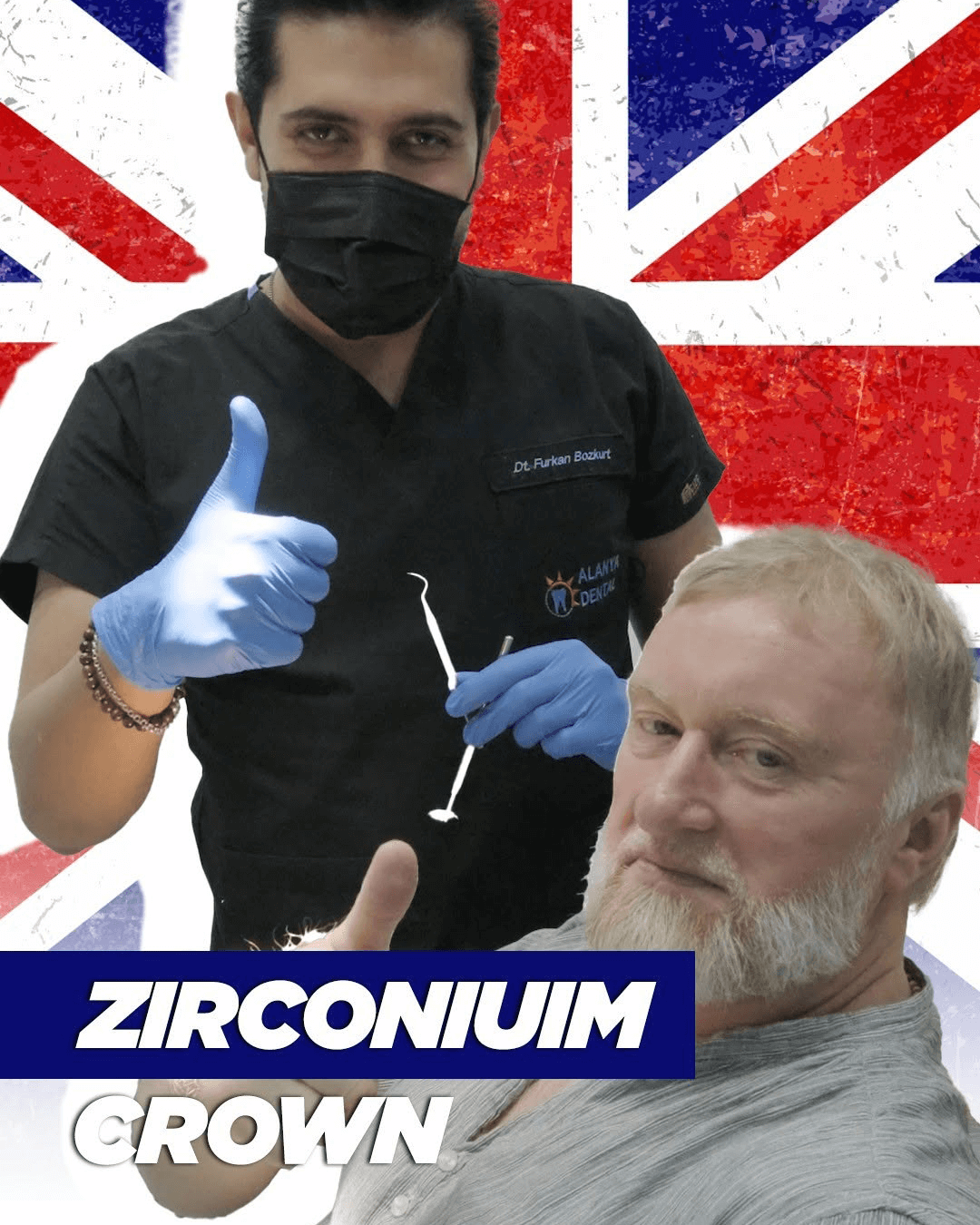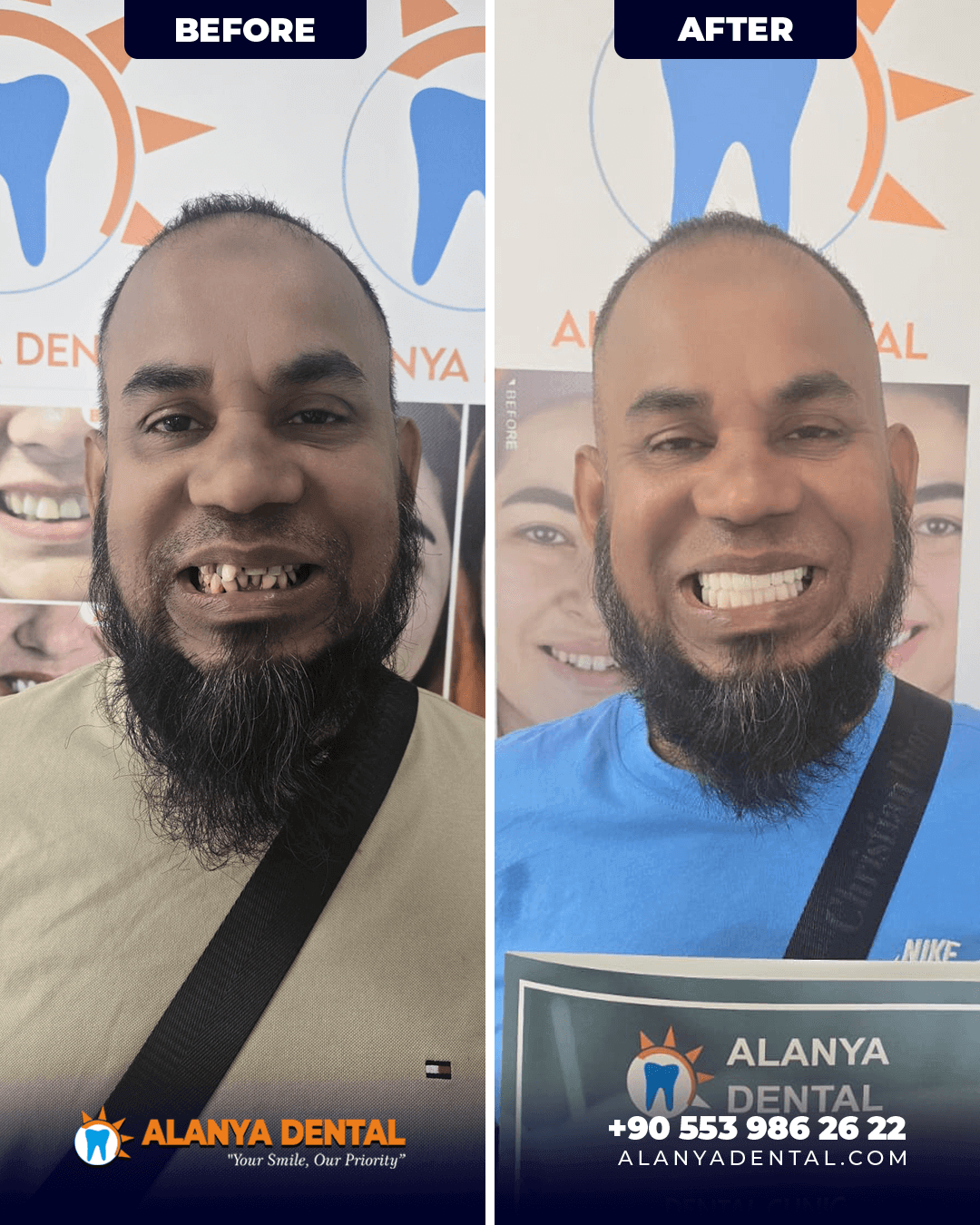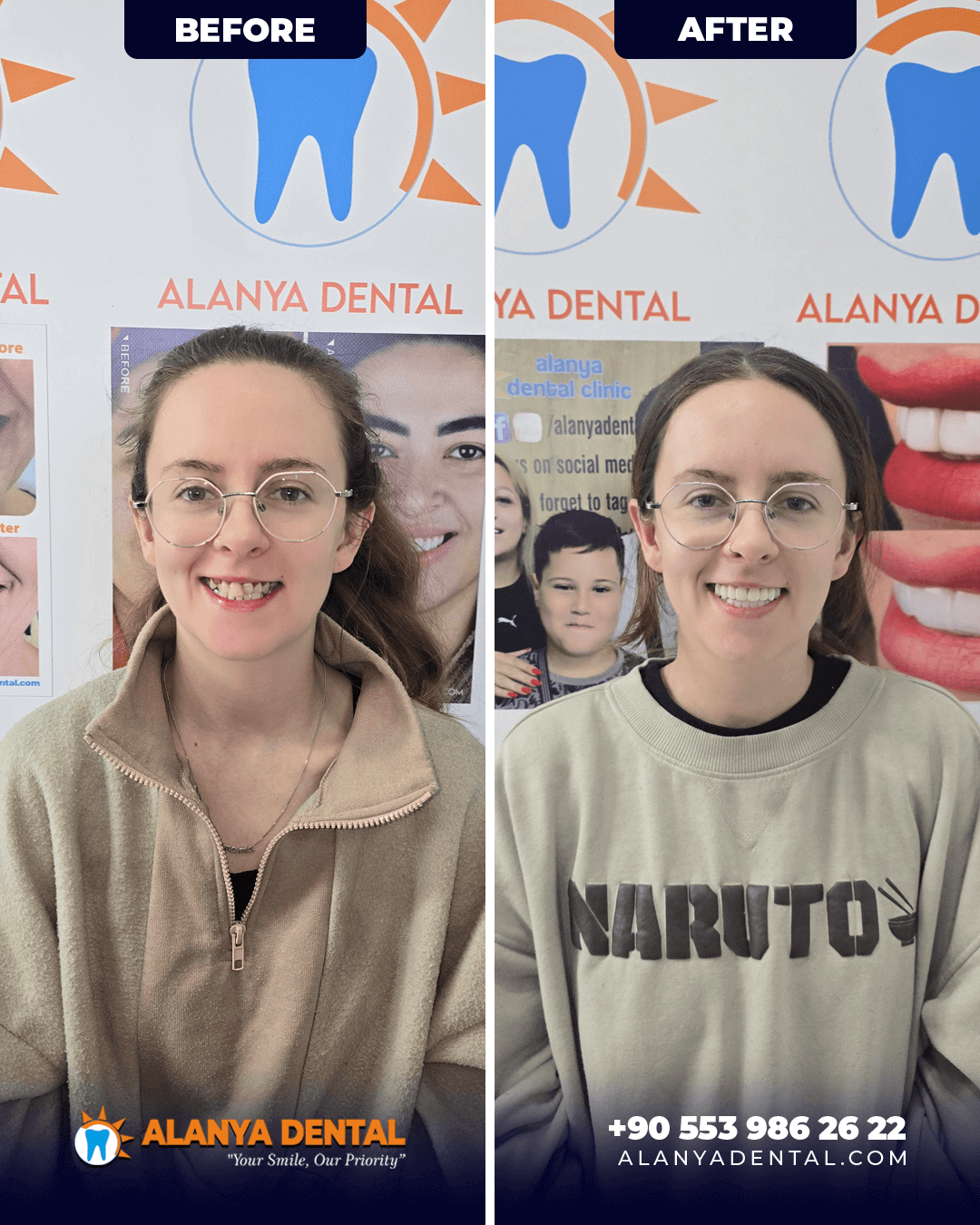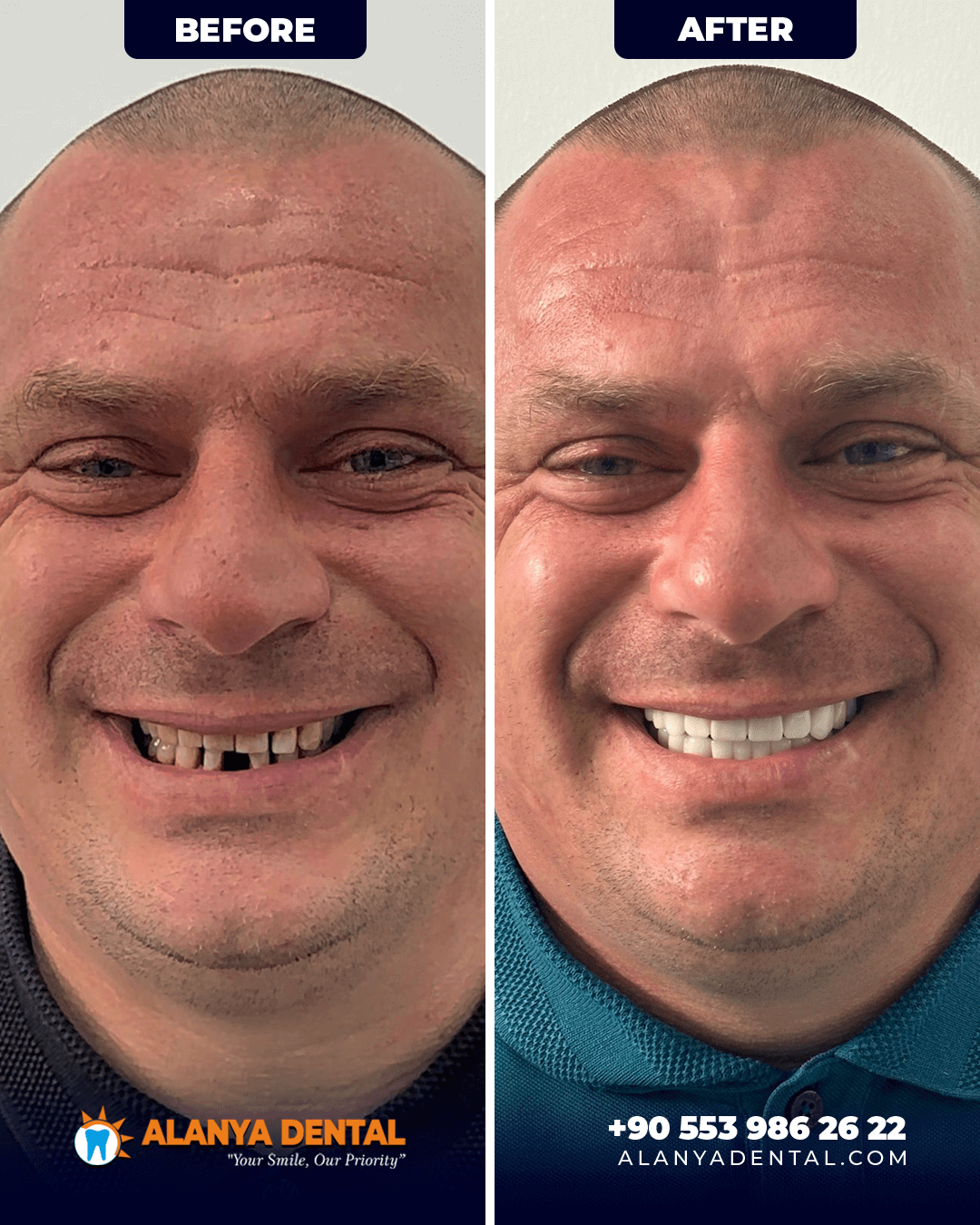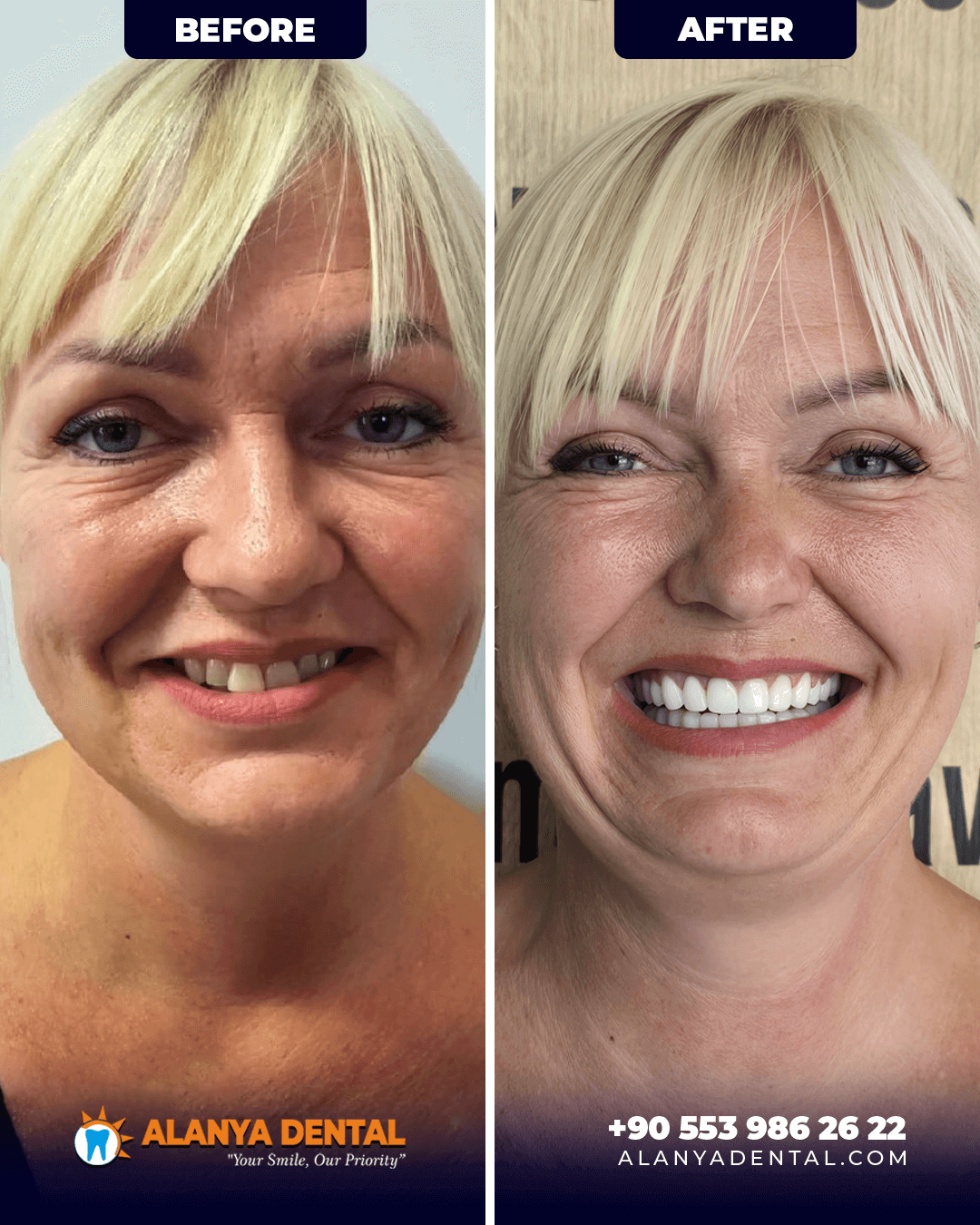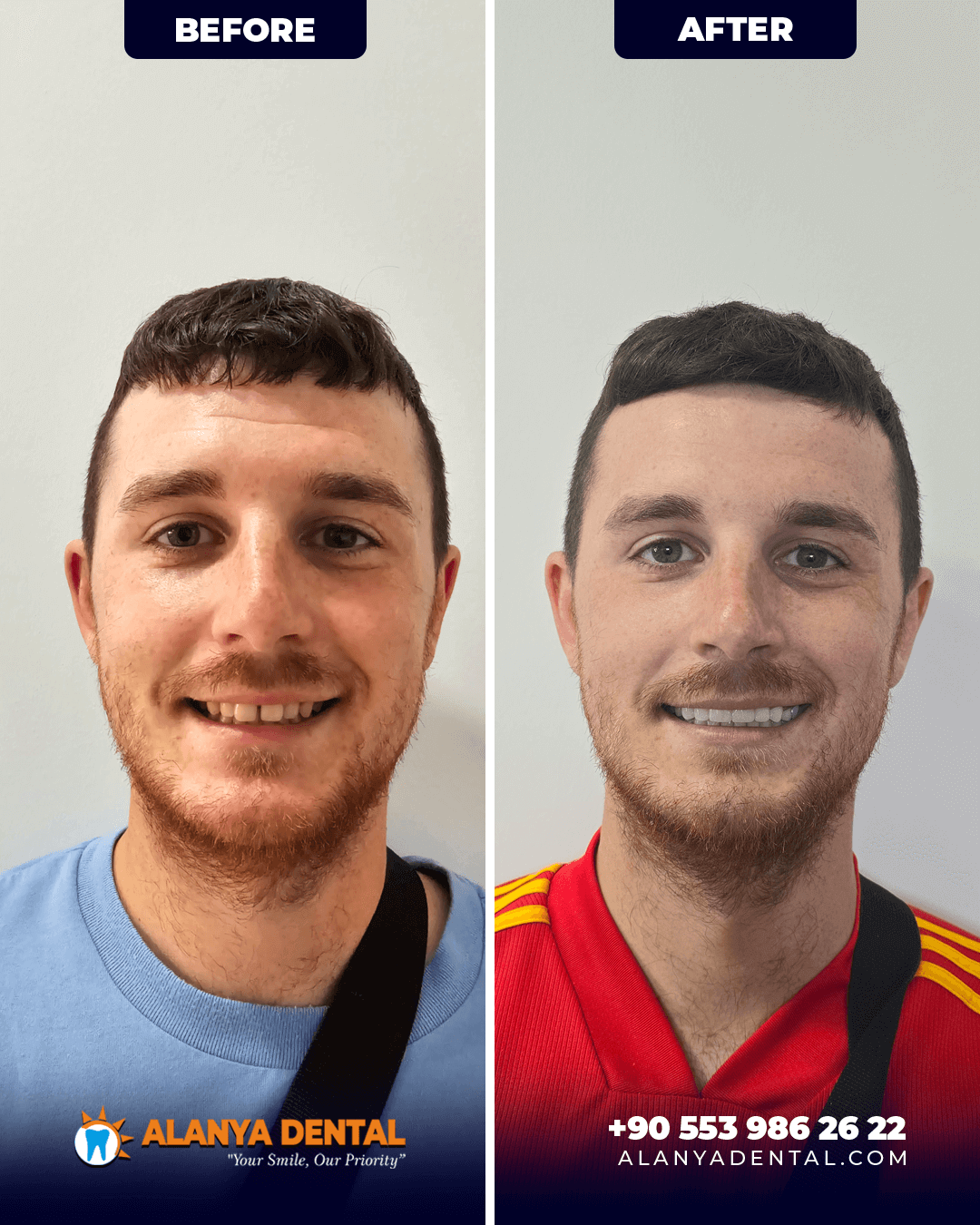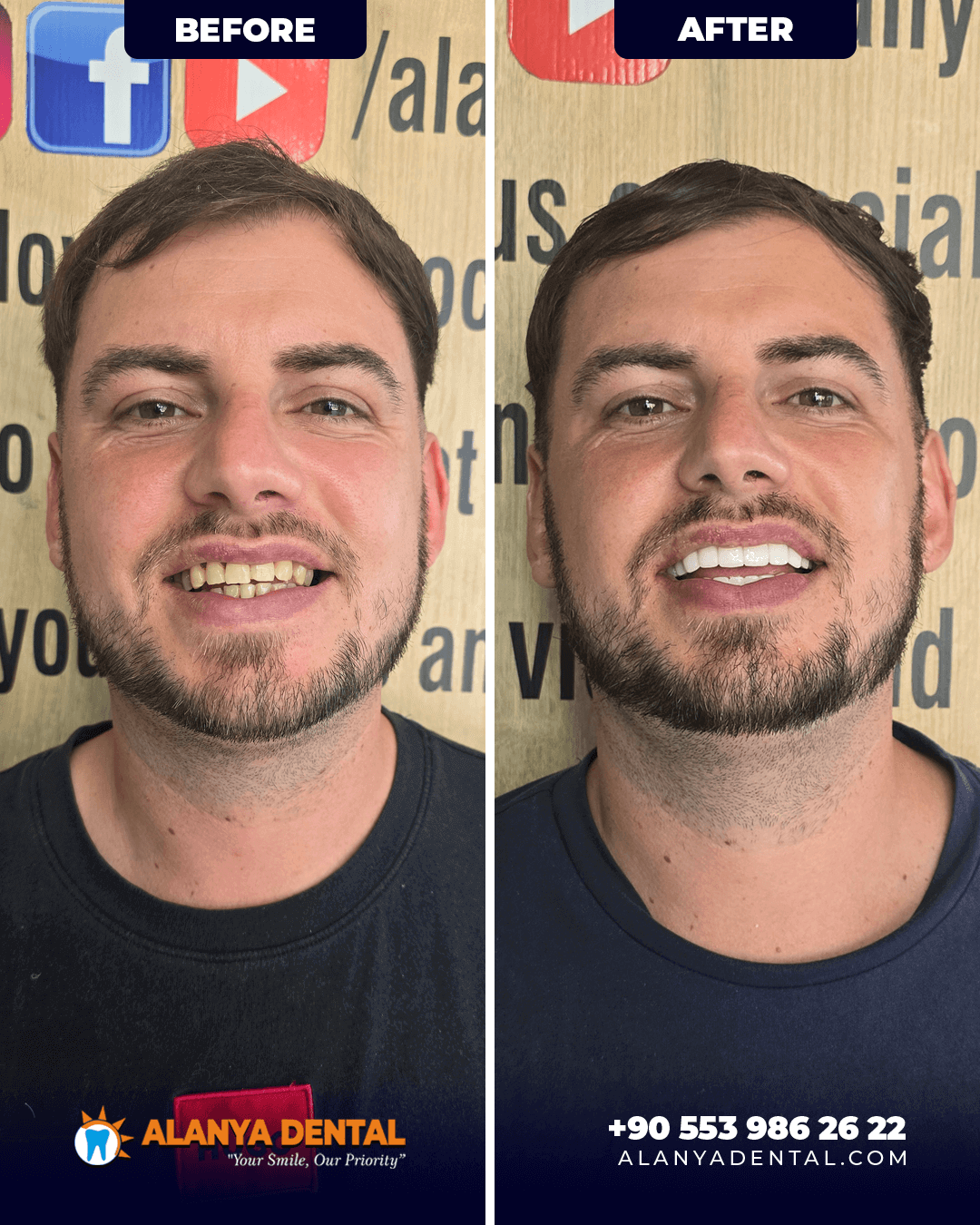Dental Veneers in Turkey

Dental Veneers in Turkey
Dental veneers have been an effective solution for dental health and smile aesthetics for many years. These special layers, which mimic the appearance of natural teeth, are used to improve both the appearance and function of teeth that have been damaged or deformed for various reasons. The treatment involves placing a thin yet durable surface over the tooth. This supports chewing function while preserving the tooth's structure.
Veneers can be used to address a variety of dental problems. They are preferred in cases such as discoloration, fractures, abrasions, or gap filling. Achieving aesthetic harmony, especially in front teeth, requires meticulous planning. The dentist determines the type of veneer best suited to the individual's oral structure and tooth color. This process requires high precision, using state-of-the-art measuring instruments and laboratory support.


Types of Veneers
Veneer types vary depending on the application purpose, material structure, and aesthetic expectations. Porcelain veneers are one of the most preferred options thanks to their natural appearance and color harmony. Their durability ensures long-term durability.
Zirconium veneers stand out with their metal-free structure and high durability. Thanks to their light transmittance, they offer an appearance close to natural teeth. They are particularly preferred for achieving aesthetic results on front teeth.
Metal-supported porcelain veneers are used in areas subject to high chewing forces. The metal in their substructure provides extra durability. They offer functionally effective results on back teeth.
Laminate veneers are thin porcelain layers applied to the front surface of the tooth. Because they are applied with minimal abrasion, they protect the tooth structure. They are especially suitable for covering discoloration, small cracks, or gaps. Alanya Dental Clinic offers personalized solutions with its advanced technology and experienced team during this evaluation process.
Materials Used in Dental Veneers
Zirconium is another material that has gained popularity in recent years. Its metal-free structure, biocompatibility, and durability are noteworthy. It allows for gum-compatible results. It offers aesthetic advantages for front teeth and durability for back teeth.
Metal alloys are used, particularly in metal-supported porcelain veneers. The metal, which serves as the substructure, provides resistance to high chewing forces. However, caution is required in areas with high aesthetic demands.
Composite resins may be preferred for more economical and faster solutions. However, they may have a shorter lifespan than porcelain or zirconia. Therefore, they are generally suitable for temporary crowns or minor corrections.

Steps of the Veneer Procedure
First, the dentist examines the patient's mouth and provides clear information about the condition of the tooth to be veneered. Before taking an impression, the tooth surface is prepared. During this process, the tooth's shape is adjusted to ensure the veneer fits perfectly. The impression is then taken using precision measuring instruments and sent to the laboratory.
During the laboratory process, an exact replica of the tooth is created. The veneer material to be used is selected based on the patient's preferences and the dentist's recommendations. Color matching is also crucial at this stage. The color determination is performed to find the closest shade to the patient's natural tooth color.
Once a veneer is prepared, the dentist first performs a temporary try-in. During the try-in, the veneer's fit, bite balance, and aesthetic appearance are evaluated. If any issues are detected, it is sent back to the laboratory for further correction.
In the final stage, the veneer is secured to the tooth using special adhesive materials. Once the bonding process is complete, the dentist performs final checks. The patient is advised on regular maintenance to ensure the veneer's longevity. At the end of the treatment, a satisfactory result is achieved, both functionally and visually.
Aftercare Tips for Dental Veneers
Post-dental care is crucial for extending the life of the veneer and maintaining oral health. Once the veneer is placed, the patient must maintain oral hygiene. Here are some important points to consider:
- Avoiding biting hard foods directly with the crown of your teeth
- Regular brushing and flossing
- Limiting acidic and excessively sugary foods
- Regular dental checkups
- Using a dental appliance to prevent clenching and grinding your teeth
One of the most critical aspects of post-veneer care is minimizing contact with hard foods. Biting nuts or hard candies directly with the veneer increases the risk of cracking or breaking the material. Regular brushing and flossing prevent plaque buildup at the veneer edges.


Veneer Prices in Turkey
Dental veneer prices can vary depending on a number of factors. These factors include the type of material used, additional procedures performed during the treatment process, and laboratory quality. The doctor's experience and the clinic's equipment also influence pricing.
Material selection plays a direct role in price. Costs vary among porcelain, zirconium, metal-backed, or composite veneers. Laboratory quality is one of the factors that determines the durability and aesthetic appearance of a veneer. Veneers requiring precision work may have higher costs.
Frequently Asked Questions About Veneers in Turkey
Patients may have many questions about dental veneers. The answers to these questions provide confidence in the treatment decision-making process. Here are detailed answers to the most frequently asked questions:

Do Veneers Cause Pain?
Dental veneers are a preferred treatment method for improving the aesthetic appearance and functionality of teeth. Before the procedure, the tooth surface is prepared with special devices to ensure a smooth fit for the veneer.
Applying local anesthesia during preparation prevents pain during the procedure. Some patients may experience mild tingling or tenderness after treatment. This is a natural response of the dental tissue to the stimuli it is exposed to during the procedure.


What Are Dental Veneers?
A dental veneer is a specialized prosthetic technique used to enhance the appearance and function of natural teeth. It is placed over damaged, discolored, misshapen, or aesthetically unsuitable teeth. A veneer covers the entire surface of the tooth and protects the underlying structure from external factors.
Before treatment, the tooth surface is thinned to a certain extent. This process is essential for the veneer to fit and appear natural. Impressions are then taken, and a custom veneer is fabricated in the laboratory. The shade is selected to match the surrounding teeth. This step is critical for the natural aesthetic results.
FAQ's
Frequently Asked Questions
Avoiding extremely hot or cold foods for the first 24 hours will minimize tooth sensitivity. Soft foods will prevent stress on the new veneer surface. Nuts with hard shells, overly sticky candies, or very tough cuts of meat can damage the veneer's structure.
It takes a few days for dental veneers to fully adapt to the teeth and for the gums to adapt to the new structure. During this period, it is recommended to chew food in small bites and in a controlled manner. Meticulous oral hygiene plays a crucial role in the longevity of veneers.
The adaptation period depends on factors such as tooth structure, the type of veneer, and the individual's chewing habits. In the first few days, a different surface may be felt in the mouth. This sensation is more pronounced initially because the tongue is constantly in contact with the new structure. A slight awareness or an unusual feeling of pressure may occur during chewing. This is due to the muscles and jaw joint adapting to the new position.
Slight changes in some sounds may be noticed during speech. This is particularly common with veneers applied to the front teeth. Regular speech practice will eliminate this difference within a few days. With veneers applied at Alanya Dental Clinic, this adaptation process is generally short and smooth.
Whether dental veneers cause bad breath is a question on many people's minds. The procedure itself doesn't cause bad breath. The key factor is how oral hygiene is maintained.
If food particles accumulate between the veneers and the gums, bacterial growth can accelerate, leading to bad breath.
Regular brushing, flossing, and mouthwash minimize this risk. Cleaning the edges of veneers is as important as cleaning natural teeth. Inadequate cleaning can increase plaque buildup, leading to gingivitis and, indirectly, bad breath.

Book Your Free Consultation Today!
Free Consultation

Healthy Teeth, Happy Smile!
Healthy teeth are the foundation of a confident and radiant smile — because when your teeth are healthy, every smile shines brighter and makes you feel happier inside and out.
Why Booking a Dental Appointment at Alanya Dental Clinic is Essential for Your Oral Health


 TR
TR DE
DE Teeth Cleaning
Teeth Cleaning 


